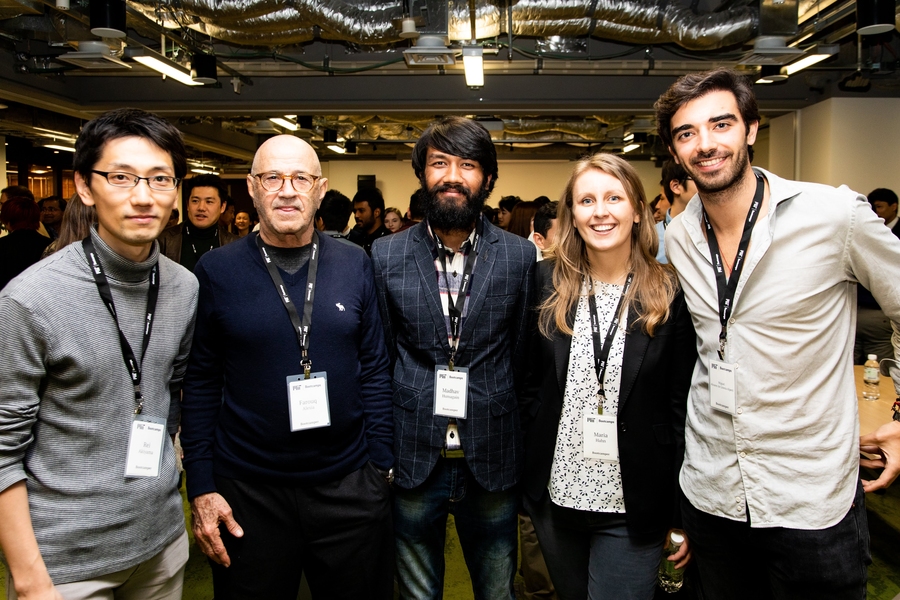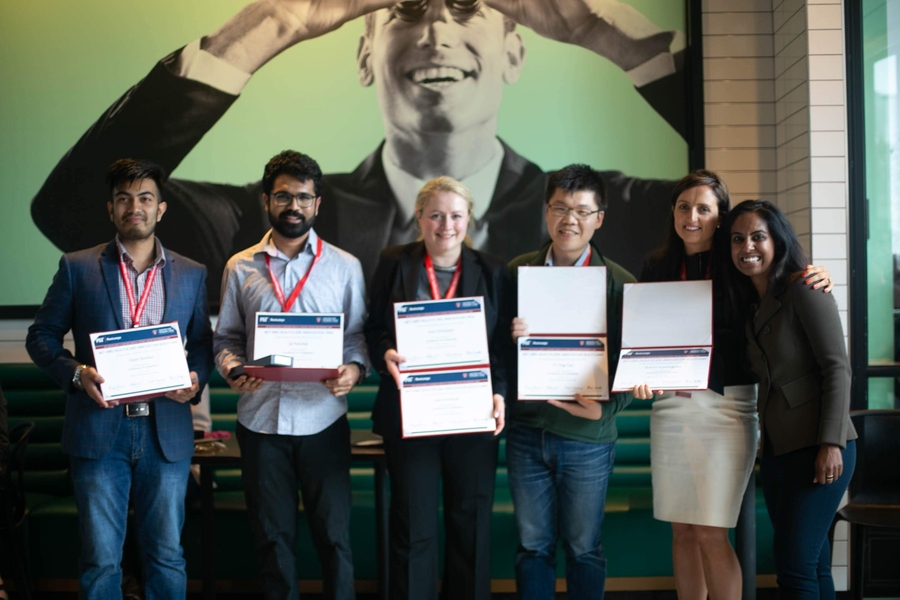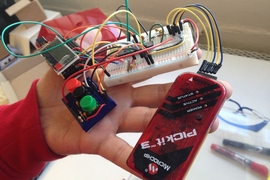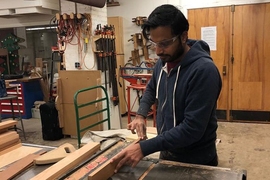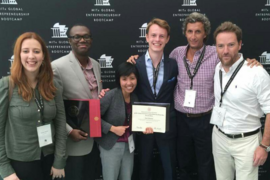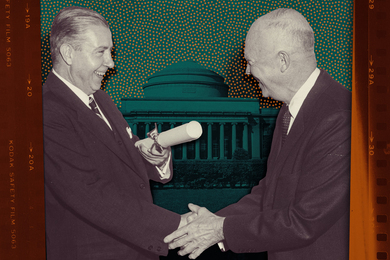While the mission of working on a team to start a new venture in a single week may sound daunting, many bold innovators have embraced this opportunity through MIT Bootcamps. These intense, weeklong educational programs accelerate the progression from idea to action.
For Jal Panchal, an engineer in Boston, Massachusetts, and Maria Hahn, an entrepreneur in Basel, Switzerland, the weeklong setting offered the perfect opportunity to hone their ideas for making a difference in a space they felt very passionate about: medical devices.
Improving physical therapy compliance for children with cerebral palsy
Growing up with cerebral palsy in India, Panchal noticed an unmet need. Physical therapy can be critical for individuals with cerebral palsy in helping them to maintain and develop their motor skills. But the challenge is that it can be hard to stay motivated to do repetitive exercises. The exercises can quickly become tedious, and the equipment involved can be expensive. Panchal identified a great need for children to have an easy, fun way to practice physical therapy.
Panchal transformed this unmet need into a new opportunity at the MIT-Harvard Medical School Healthcare Innovation Bootcamp last year. The program included a three-day trek to Boston-area health care companies and organizations, including Boston Children’s Hospital, Beth Israel Deaconess Medical Center, and Vertex Pharmaceuticals.
“Visiting the different organizations showed me how important it is to understand the whole system,” says Panchal. “You can’t just have a solution to a particular problem that doesn’t consider the whole system. A solution doesn’t work unless you know the people involved, the stakeholders. There is already an existing, elaborate health care system — and any solution has to fit within it.”
The project developed by Panchal and his team seeks to better enable children with cerebral palsy to do the physical therapy needed to develop their muscles and bones. They developed a wearable sensor with a feedback mechanism. The team members, who originate from five different countries, worked closely with Boston Children’s Hospital. One approach they’ve explored is making the physical therapy into a game by having the children select a favorite character, such as a superhero, and have the children’s movements also done, simultaneously, by the character on a screen. Panchal used similar games as a child.
“The focus on ‘user innovation’ was especially important and eye-opening to me,” Panchal said. “When you focus on solving a problem you face yourself, you have this insight that no one else can have.”
Panchal says that while working on the bootcamp project is still very much in the discovery phase, he sees great potential in it, as well as in the problem-solving approaches he learned at the bootcamp.
His team is still together and working on their device. Given the momentum of the project, the team now receives faculty mentoring from the Harvard Medical School Center for Primary Care.
Detecting glucose levels for diabetes patients with a non-invasive sensor
For Hahn, MIT Bootcamps was the beginning of an award-winning startup.
In November, Hahn accepted an award on behalf of the Nutrix team at the PITCH competition for early-stage startups at the 2019 Web Summit in Lisbon, Portugal — one of the largest annual conferences for the technology industry in the world.
The idea behind Nutrix began through conversations between Hahn and a friend with diabetes. Hahn listened to her friend’s struggles with the condition, stressing the need for affordable, easy-to-use technology to monitor the condition.
Hahn, who holds an MBA and has worked in the medical device industry for 10 years, brought this insight with her to the MIT Technology and Innovation Bootcamp held in Tokyo, Japan last year, where her bootcamp team began their brainstorming with an inexpensive sensor to monitor caloric intake.
Upon returning to Switzerland, Hahn continued to work on the idea, bringing what she learned from the bootcamp to a new team, who together evolved the project to a nanosensor designed solely for glucose monitoring. The sensor is non-invasive, placed on the user’s tooth, and detects glucose levels in saliva, delivering the information through an external app.
Hahn sees Nutrix as being able to provide many diabetes patients worldwide with an affordable option for monitoring their glucose levels — including people in developing countries, as well as patients with Type 2 diabetes (for whom monitoring systems are often not covered by insurance).
“Before you focus on the product, you focus on the patient,” says Hahn. “We talked with diabetes patients and asked them about the pain points of the existing monitoring systems.”
Hahn says that one of the most valuable things gained from her bootcamp experience was developing a forward-thinking approach to problems, thinking beyond current realities and limitations.
“We were encouraged to think in the long term,” says Hahn. “Think not about today, but think about tomorrow.”
